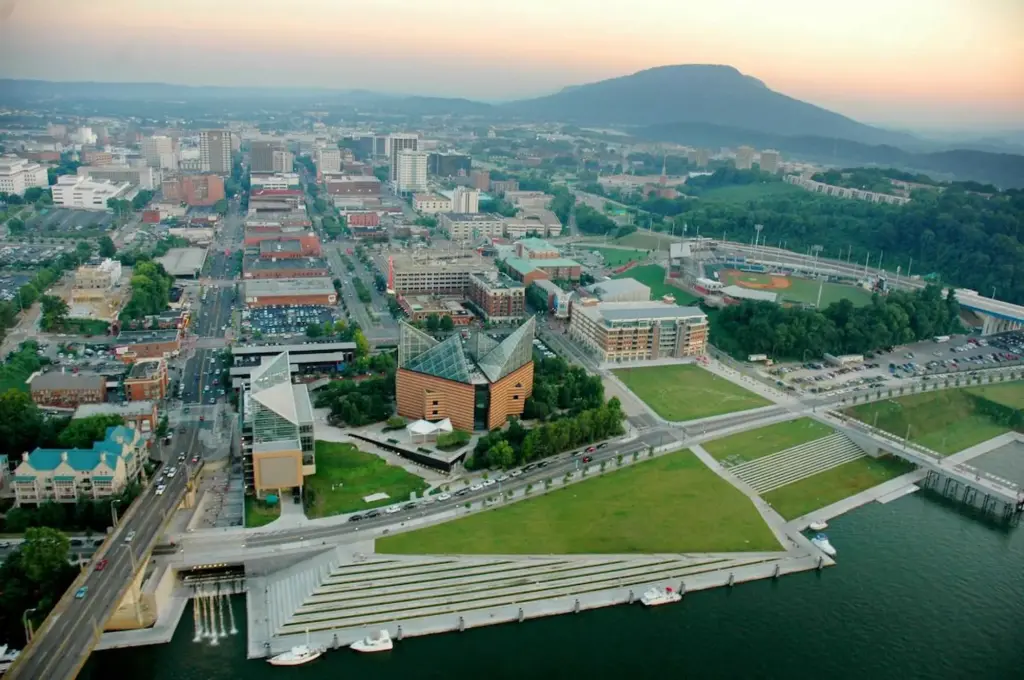
A recently published University of Minnesota Duluth study provides a glimpse of the numerous benefits of urban highway removal. The report estimated that rightsizing just one mile of I-35 in Duluth would cost $50 million but could lead to up to $4.5 billion in economic benefits, including 450 construction jobs, $29 million in labor income, nearly $39 million to the area’s GDP, and $74 million in new spending. A similar feasibility study for I-94 would help the public and decision-makers better understand the potential benefits of an I-94 boulevard conversion.
It’s not hard to begin thinking about what that project alternative might look like for the Minnesota Department of Transportation (MnDOT) Rethinking I-94 project between Minneapolis and Saint Paul.
Imagine the benefits if we converted that 7.5-mile stretch of I-94 into a multimodal urban boulevard. Imagine returning land to every neighborhood along the corridor, so they can come together and develop visions for each of their communities. Imagine the potential economic impact of new housing, businesses and jobs, walkable communities, accessible streets, cultural districts, rapid transit, linear parks, and urban gardens on what is now highway pavement.
Rebuilding the freeway for another six decades wouldn’t create any of those community benefits. Instead, it would make them impossible.

Bills Blocked by Transportation Committee Chairs
We are disappointed that Minnesota State Representative Frank Hornstein and State Senator Scott Dibble, who chair the House and Senate Transportation Committees, did not schedule a hearing for H.F. 2270 and S.F. 2180, bills to fund a feasibility study of a highway-to-boulevard conversion of I-94 between downtown Minneapolis and Saint Paul, before the March 24 committee deadline. Their inaction is incredibly disappointing, considering the immense community support and Sen. Dibble’s bill co-authorship.
Instead of supporting the feasibility study bill and proactively addressing the legacy of racist transportation infrastructure decisions that decimated poor and working-class BIPOC communities sixty years ago. Commissioner Nancy Daubenberger and MnDOT attached an inaccurate and inflated fiscal note to the bill that openly opposed the study. This was a shameful strategy to avoid accountability and push forward with designing Rethinking I-94 project options without consideration of metrics like public health, racial equity, climate, and economic justice.
Rep. Hornstein and Sen. Dibble used MnDOT’s fiscal note and the study’s cost as excuses for blocking committee hearings ahead of the March 24 deadline. These concerns are hypocritical and hold little merit. Instead of supporting a $600,000 study to repair I-94’s harms (just 0.05% of what will be spent on transportation this session), Rep. Hornstein and Sen. Dibble allocated tens of millions of dollars for highway expansion via the Corridors of Commerce program in their recently unveiled omnibus transportation bills. Widening highways has not only been proven ineffective but also increases emissions and pollutes marginalized communities.
Urgent Action is Needed
MnDOT’s Rethinking I-94 project timeline makes this analysis urgently needed. MnDOT is currently designing project alternatives which will be revealed for public comment this summer. Without a feasibility study, it is incredibly unlikely a highway-to-boulevard conversion is included in these options.
Research conducted by Mapping Prejudice Project and the University of Minnesota’s Heritage Studies and Public History Program shows us that racially restrictive housing covenants forced African American communities, immigrants, and many poor and working-class people to live in the areas selected for destruction to make way for Minnesota’s highways. A feasibility study is a common sense step toward repairing the highway’s historic and ongoing harms.
Additionally, the recent International Panel on Climate Change (IPCC) report warned that we are facing a now or never scenario for rapid climate action. The report urged policymakers to “prioritis[e] equity, climate justice, social justice, inclusion, and just transition processes [that] can enable adaptation and ambitious mitigation actions and climate resilient development.”
Considering this history, the ongoing climate, economic, and health harms the communities along the corridor are experiencing, and the immense community support for a study, we are disappointed that Rep. Hornstein and Sen. Dibble chose to block a hearing.
A feasibility study would mean that, for the first time in sixty years, residents along the I-94 corridor would get an opportunity to consider what it could be like to live without the highway. People deserve to know how the highway impacts them, and the potential benefits of removing it before I-94’s future is decided for another half-century.
What’s next?
It is likely that the House and Senate will hold informational hearings about the Rethinking I-94 project before the legislative session ends in May. Informational hearings do not allow for committee action on bills, meaning the feasibility study bills will not be eligible to be included in the omnibus transportation funding bill this session.
However, the informational hearing is a critically important opportunity to hold MnDOT, call out the urgent need to repair the highway’s harms, and give the community the opportunity to imagine a better future. We will share an update as soon as a hearing date and time is finalized.